I got another view of the outfall canal from Lake Mattamuskeet yesterday as I headed down into mainland North Carolina with one of my science-type friends yesterday. I've seen, and used as a navigation mark, the outfall canal over the years sailing on Pamlico Sound. Heading south from Engelhard the marshy shore leads to Wyscoking Bay and Hog Island, then begins a westward curve where the 15 foot tall canal entrance marker stands near North Bluff Point.
Yesterday my view of the canal was from a rickety bridge across the canal on a seemingly endless expanse of farmland. Just looking down the canal brought back memories of sailing by the rugged, remote shoreline over the years.
My friend, a biologist, was in search of a red wolf. Once an important member of the ecosystem, the red wolf is now an endangered species due to loss of habitat and misguided predator control programs. Only about 100 now live in the wild. We were in search of just one, a wolf that my friend had caught sight of a few days earlier. Even before we crossed the canal bridge he had picked up a signal from the wolf's tracking collar.
Over the bridge and in the fields we found nothing but empty traps, humane traps buried in the ground. Some had been tripped, most likely by deer, most were untouched.
It was at the last trap that we found the wolf, a large male that had run into some nearby trees. The wolf's leg was in the trap and it had dragged the chain and an anchor-like device that got caught up in the undergrowth. Tucked into a kennel, it was back to the rehab center for this lone wolf.
As with all things environmental, there are some controversies with the wolf program. Bringing back a predator?? Was it a wolf that got my cat/dog/cow? Are they running off all the deer and turkeys (even though though the deer and turkey population is at an all-time high)??
All that is beyond me. I was just glad to get a different look at nature, and a different look at the outfall canal.











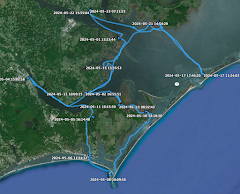
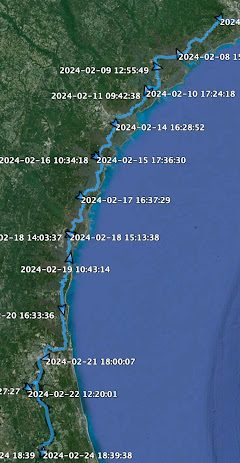

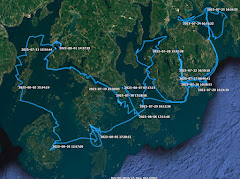

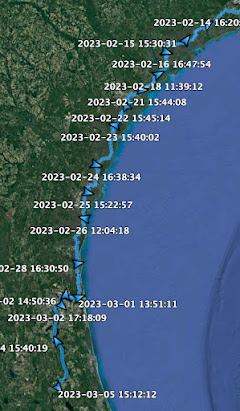

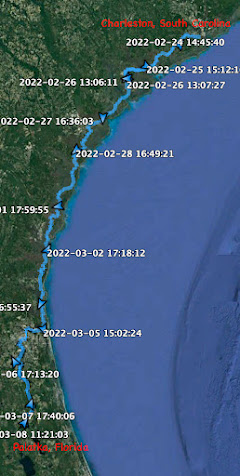
























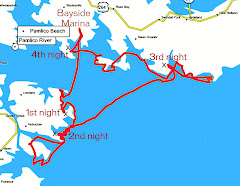


2 comments:
Steve, It's always a treat to read your posts! I was glad to find here...
http://trackthepack.blogspot.com/2010/06/management-techniques-trapping-and.html
...very clear reassurance that the 'soft catch' humane trap you photographed is indeed infinitely more gentle than it first looked to my untrained eyes.
Yes, Paul, I should have been more clear about that. The traps catch the wolves without injury. In fact they are rigged so that, once trapped, the animals can seek shelter in the woods or brush. Deer and bobcats can trip the traps without being caught, minimizing accidental trapping.
I'm sure the wolf did not like being trapped, but he'll get some attention that he needs.
steve
Post a Comment